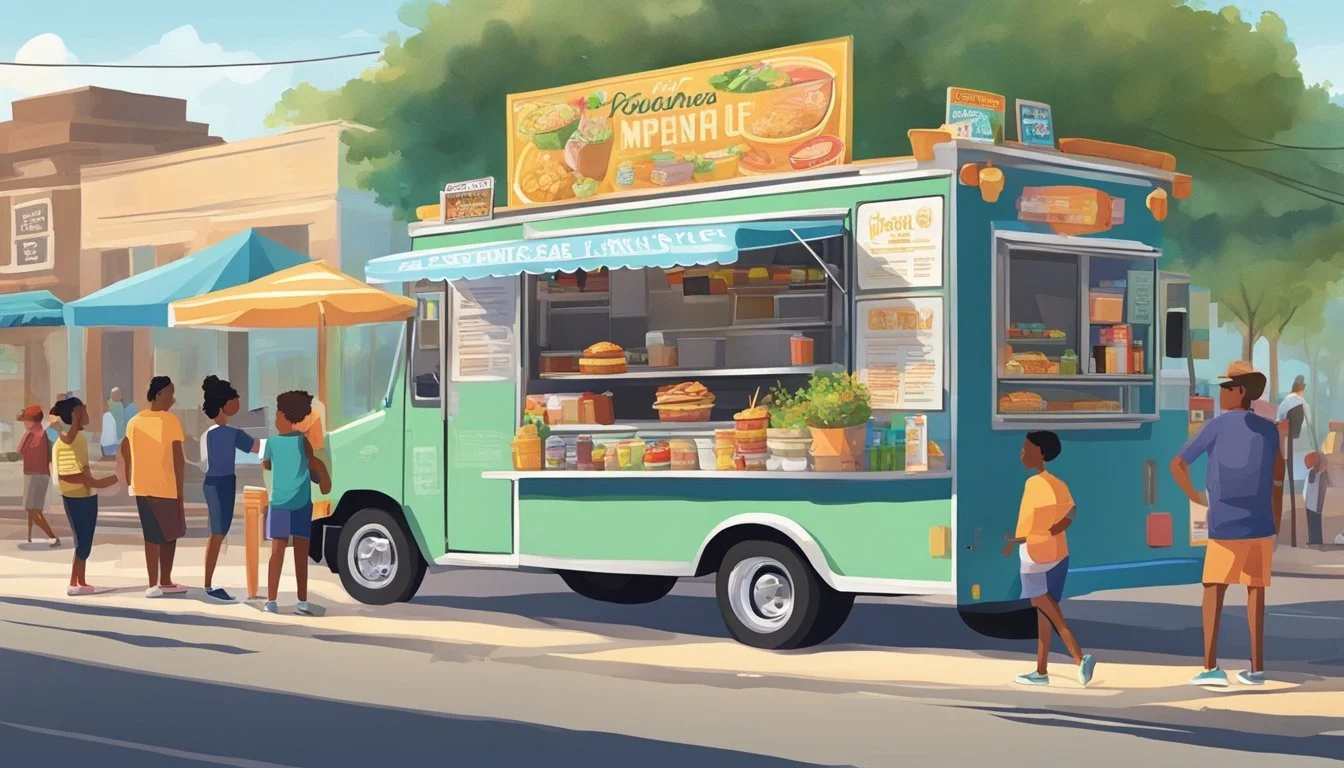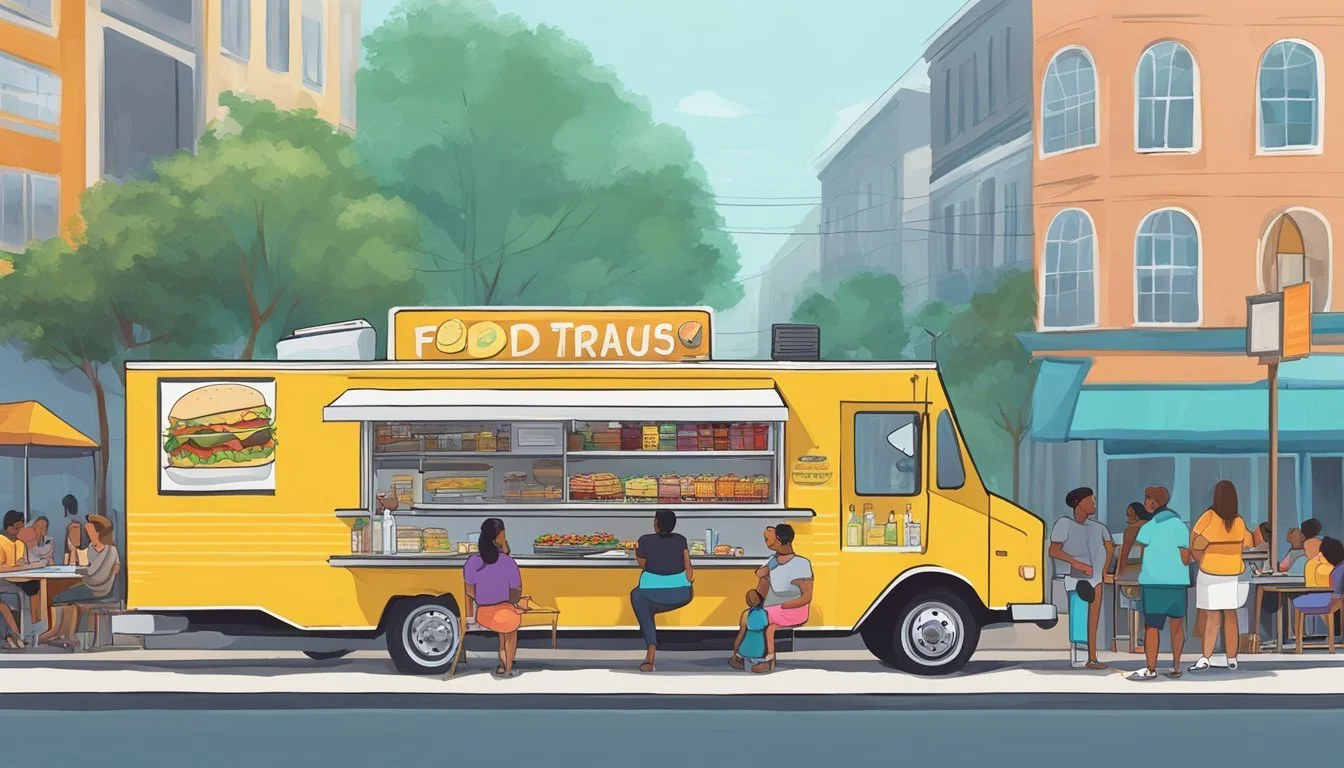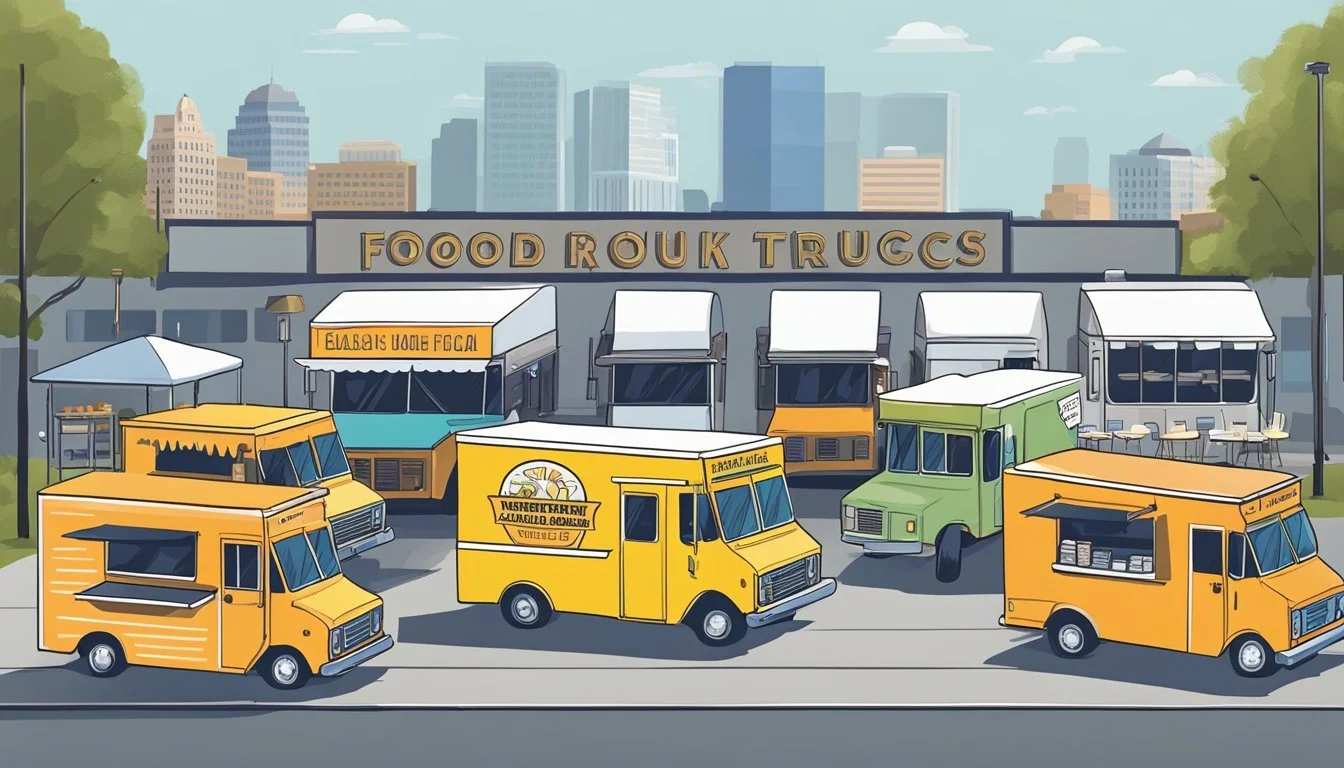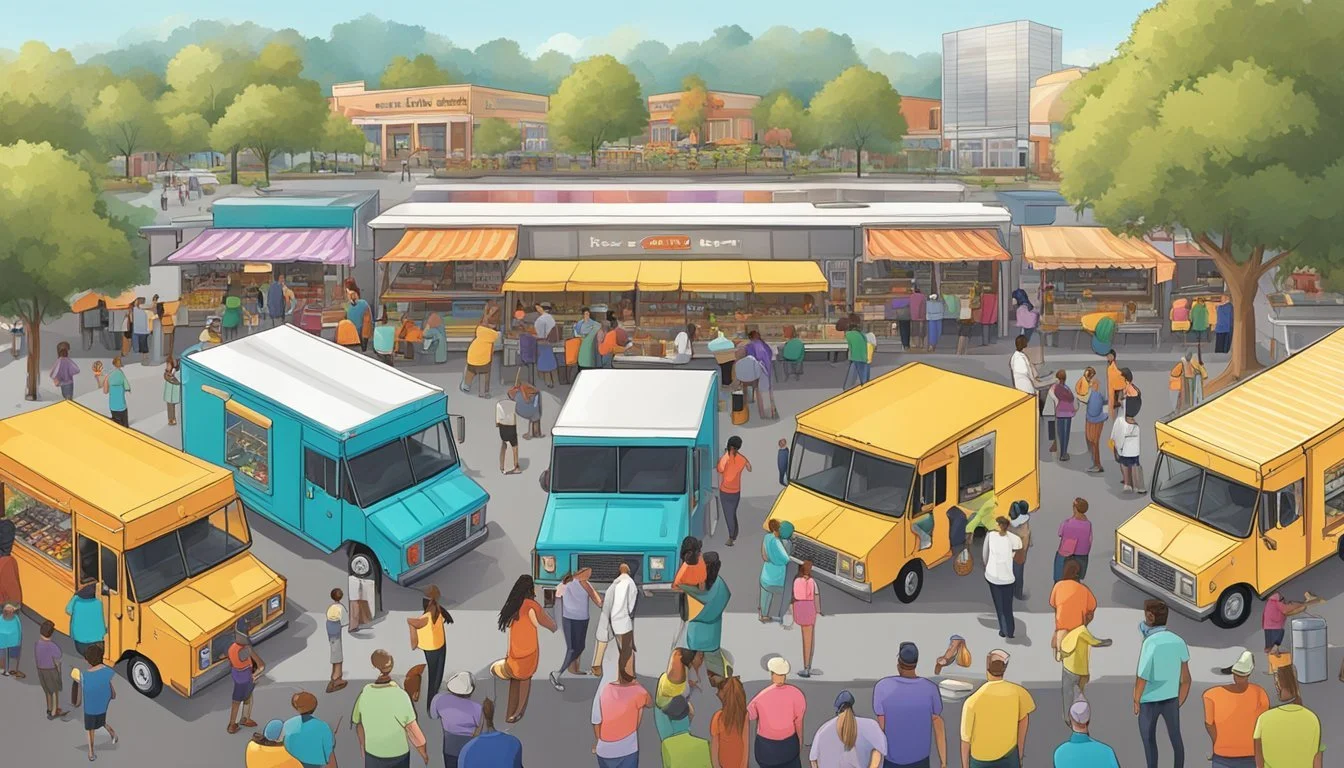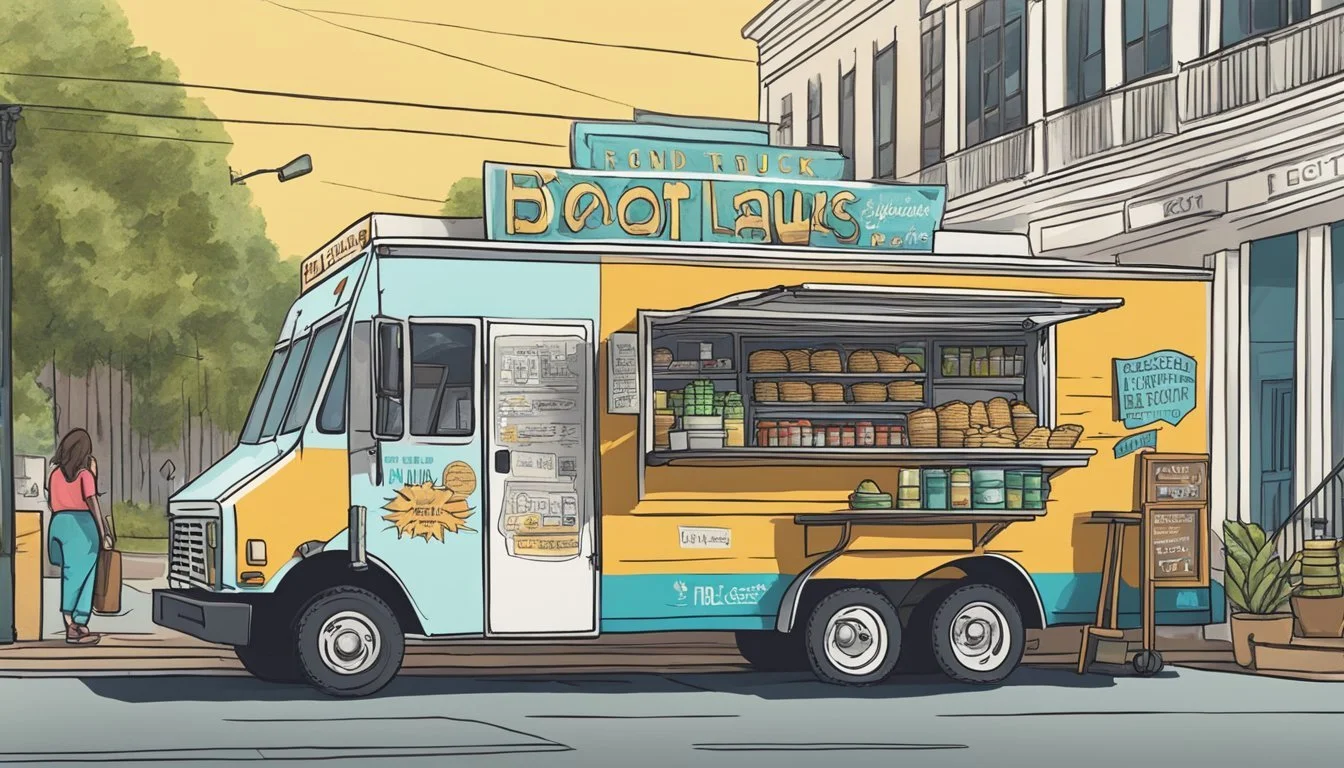Food Truck Laws Baton Rouge, Louisiana
Navigating Regulations for Mobile Vendors
In Baton Rouge, Louisiana, food trucks are a popular culinary feature, serving an array of local and international delicacies to residents and visitors alike. With the city’s growth and its embrace of diverse food cultures, the local government has put forth specific regulations to maintain public health and safety while fostering the economic opportunities that food trucks present. Key legislation, such as the Rolling Vendors Ordinance, plays a crucial role in outlining the framework within which mobile food vendors operate.
These laws cover a variety of aspects from permits and licenses to food safety and waste disposal. Compliance with Louisiana Department of Health regulations is critical for any food truck operator to ensure they can legally serve food to the public. This includes adhering to food safety ordinances, tax laws, and specific food truck requirements to protect customers and the integrity of the food truck sector in Baton Rouge.
Operation of a food truck in Baton Rouge also involves meeting the standards set by government agencies for driving regulations, proper waste disposal, and adherence to the public health laws. While the challenge of meeting these standards can be significant, the guidance provided by the city helps to clarify these requirements, supporting the vibrant food truck culture that contributes to the character and economy of Baton Rouge.
Starting a Food Truck Business in Baton Rouge
Starting a food truck in Baton Rouge requires a deep understanding of the local industry, a well-crafted business plan, and a careful decision on whether to join a franchise or start an independent brand.
Understanding the Food Truck Industry
Before entering the food truck industry in Baton Rouge, entrepreneurs must analyze the local market to identify potential competition and customer preferences. Baton Rouge has specific regulations that guide the operation of food trucks. Potential owners should familiarize themselves with these to ensure they can navigate the legal landscape successfully. Factors such as popular locations, peak business hours, and the variety of food already available have significant impacts on a new business’s potential success.
Creating a Business Plan
When starting a food truck business, it’s critical to develop a detailed business plan. This plan should outline the firm’s structure, marketing strategies, funding requirements, and revenue projections. A strong business plan helps prospective food truck owners in Baton Rouge establish a clear roadmap and can be vital when seeking to lease equipment or acquire financing.
Choosing a Franchise or Independent Brand
In Baton Rouge, potential food truck owners must decide whether to operate as part of a franchise or as an independent brand. Franchises offer the advantage of an established brand and support network, which may lead to a more straightforward entry into the industry. On the other hand, an independent food truck offers more creative freedom and the opportunity to build a unique presence in Louisiana’s vibrant restaurant scene. Entrepreneurs should weigh these options carefully, considering their long-term business goals and desired level of control.
Legal Requirements for Food Trucks
In Baton Rouge, Louisiana, operating a food truck involves various legal requirements including registering your business entity, obtaining specific licenses and permits, and complying with stringent health and safety regulations.
Registering Your Food Truck Business
To legally operate a food truck in Baton Rouge, owners must first establish their business as a legal entity. This typically involves registering with the Louisiana Secretary of State. Options include a sole proprietorship, partnership, LLC, or corporation. Additionally, you may need to obtain a federal Employer Identification Number (EIN) for tax purposes.
Food Truck Specific Licenses and Permits
Once registered, food trucks require specific licenses and permits. Operators must obtain a Mobile Vendor Permit from the local government. Moreover, a Vendor's License, and compliance with local zoning laws are necessary. Detailed requirements are discussed on government sites like Louisiana Department of Health.
Health and Safety Regulations
Health and safety are paramount for food trucks in Baton Rouge. They must adhere to food safety ordinances, including proper temperature controls and waste disposal standards. Food trucks are considered retail food establishments, thus subject to health inspections to ensure compliance with public health laws. Fire suppression systems, as outlined by the Food Handler’s Guide, must be installed and regularly serviced.
Operational Guidelines for Baton Rouge Food Trucks
In Baton Rouge, food trucks must adhere to specific regulations regarding where they can set up and during which hours they may operate. Compliance with these rules is crucial for the success and legality of food truck businesses in the area.
Location and Parking Regulations
Baton Rouge requires food trucks to obtain appropriate permits before vending in any location. There are designated zones where food trucks can operate, and these are strictly enforced to ensure public safety and business fairness. For instance, trucks are prohibited from conducting business within a certain distance from brick-and-mortar dining establishments. The Rolling Vendors Ordinance explains these specific location and distance requirements in detail. Moreover, parking regulations maintain that food trucks must be parked in accordance with local traffic laws and cannot obstruct pedestrian walkways or access to businesses.
Operating Hours and Noise Restrictions
Operating hours for food trucks in Baton Rouge are also regulated, with the aim of minimizing disruptions in residential areas and maintaining public order. Food trucks are typically allowed to operate between certain hours, often reflecting the local business hours and taking into consideration peak dining times. However, they must adhere to noise restrictions, particularly during late-night hours, to avoid any disturbance. The exact hours can vary, so it is essential for vendors to verify with the city's code of ordinances and to comply with all time-of-operation regulations as stipulated.
Compliance and Inspections
Food truck operators in Baton Rouge must adhere to various regulations to ensure food safety and compliance. Regular monitoring by authorities ensures that these mobile eateries maintain high standards and avoid hefty fines.
Routine Inspections and Compliance Checks
It is imperative for food trucks to undergo routine inspections by the Louisiana Department of Health. These inspections assess compliance with food safety ordinances and other health regulations to minimize the risk of foodborne illness. Compliance checks include evaluating temperature control for food storage, sanitation practices, and the correct handling of food. Consistent adherence to these standards is mandatory for the continued operation of food trucks in Baton Rouge.
Handling Violations and Fines
When a food truck fails to meet the required standards, it may face enforcement actions including violations and fines. The Baton Rouge Rolling Vendors Ordinance stipulates the penalties for non-compliance. Immediate correction of violations is crucial. Food truck operators should be well-versed with the regulations to mitigate the risk of penalization. Fines can vary depending on the severity of the infraction, and repeated offenses may lead to more serious consequences such as permit suspension or revocation.
Marketing and Events
Marketing and event participation are essential for the successful operation of food trucks in Baton Rouge, Louisiana. These components not only enhance visibility but also serve as opportunities to showcase one's goods and merchandise.
Promoting Your Food Truck
Successful promotion involves a strategic approach to branding and advertising. Operators should leverage social media platforms such as Facebook and Twitter to create a strong online presence. This can include posting daily locations, special offers, and enticing photos of their food offerings. Additionally, collaboration with local businesses can be beneficial. Partnering for events or cross-promotions can introduce the food truck to new customers and foster community relationships.
Participating in Local Events
Participation in local events is a prime opportunity for food truck owners to offer their merchandise to larger crowds. Food trucks should stay informed about upcoming local festivals, farmers' markets, and other community gatherings. Registering as a vendor at these events often requires pre-event planning, such as ensuring permits are in place and understanding the Rolling Vendors Ordinance in Baton Rouge. Event participation can significantly boost a food truck's profile and sales.
Financial Considerations
In the competitive landscape of Baton Rouge's food truck industry, a comprehensive understanding of financial considerations is crucial for sustainability and growth. Thorough cost analysis and awareness of local taxation are foundational to a food truck's success.
Cost Analysis and Pricing Strategies
When establishing a food truck in Baton Rouge, entrepreneurs must perform a detailed cost analysis to inform their pricing strategies. Initial expenses include acquiring a food truck, which can range from $15,000 to $100,000, depending on whether it is new or used. Ongoing costs such as ingredients, fuel, maintenance, and staffing also play significant roles. Owners must calculate their break-even point and set prices that cover costs while remaining competitive.
Breakdown of Typical Monthly Costs for a Baton Rouge Food Truck:
Lease/Loan Repayment: $2,000 - $2,500
Ingredients/Supplies: $1,000 - $4,000
Fuel: $250 - $500
Salaries: $1,200 - $4,000
Insurance: $200 - $600
Miscellaneous: $100 - $500
To maximize profits, they should implement pricing strategies that reflect the value of their offerings, consider the local market rates, and account for special events and catering possibilities which could affect pricing and cost structure.
Understanding Local Taxation
Food truck owners in Louisiana must navigate the state's taxation laws and also adhere to the specific regulations in Baton Rouge. There's a state sales tax rate of 4.45%, coupled with Baton Rouge's local sales tax, which can be up to 5.5%. They should regularly consult with a tax professional to stay abreast of the latest tax rates and deductions applicable to their operation. Moreover, food truck operators are required to collect and remit these taxes properly to avoid penalties.
Local Taxes to Consider:
State Sales Tax: 4.45%
Local Sales Tax: Up to 5.5%
Property Tax (If Owning the Location): Varies by Parish
Payroll Taxes: For Employees, if Applicable
Complying with sales tax requirements is essential, and food truck owners must ensure they have a system in place to accurately track and report all transactions. Regular financial planning and tax consultations can help mitigate the risk of unexpected tax liabilities, thus safeguarding the business's financial health.
Expansion and Growth
With the Baton Rouge food truck scene thriving, opportunities for food truck owners to scale their operations and diversify their offerings are plentiful. Key strategies involve expanding business operations and introducing new services or products to meet increasing customer demand.
Scaling Your Business
When scaling a food truck business in Baton Rouge, owners should first ensure they are in compliance with all local regulations. This includes acquiring necessary licenses and permits for larger operations. A pivotal aspect is the strategic selection of goods. Food truck owners may decide to invest in additional trucks to serve various locations, capitalizing on merchandise sales through ancillary products branded with their logo, which could range from apparel to packaged food items.
Exploring Additional Services and Products
Food truck owners in Baton Rouge have the opportunity to elevate customer experiences by incorporating additional services such as catering for private events or participating in local food festivals. Product diversification can include specialty seasonal menu items or the introduction of merchandise that complements the food truck’s theme. For instance, offering locally-inspired spices or cookbooks can provide customers with a tangible piece of the food truck experience to take home.
Building a Brand and Customer Loyalty
When establishing a food truck business in Baton Rouge, creating a memorable brand identity is crucial. A strong brand makes a food truck recognizable and can help to differentiate it from competitors.
A food truck should have a consistent aesthetic, including a distinctive logo, color scheme, and theme that is evident in the truck design, packaging, and even staff uniforms. Potential customers often draw their first impressions based on appearance, so it's essential that a food truck presents itself professionally.
Customer relations play a pivotal role in building loyalty. Interacting with patrons, being responsive to feedback, and fostering a community around the food truck can lead to repeat customers. Engaging with customers through social media or at the food truck window creates a personalized experience they are likely to remember and share.
Offering a loyalty program could incentivize repeat business. This could include a digital punch card system or discounts for regular visitors. Making customers feel valued can turn a one-time visitor into a regular.
Lastly, consistency in the quality of the offer is fundamental. This not only refers to the food but also the service and overall experience. A food truck that consistently offers unique and delicious cuisine, along with exceptional service, is more likely to build a strong, loyal customer base in Baton Rouge's dynamic food landscape.
Resources and Support
In Baton Rouge, Louisiana, food truck operators have access to a variety of resources and support programs designed to streamline their compliance with local regulations. These resources provide essential guidance on obtaining necessary licenses, securing relevant permits, understanding the review questionnaire process, and ensuring a successful plans review.
Local Agencies and Associations
The Louisiana Department of Health stands as a crucial resource for food truck operators seeking permits related to health and sanitation. Its website offers valuable information, including how to go through a plans review and comply with safety standards. Interested parties should examine the Retail Food section, which provides an overview of the necessary steps.
Additionally, the Baton Rouge Rolling Vendors Ordinance outlines the specific regulations vendors must follow to operate within the city. For detailed ordinance information, operators can refer to the Rolling Vendors page on the Baton Rouge official government website.
Continued Education and Training
Food truck owners must stay informed about evolving industry standards and best practices. Continued education and training opportunities are often available through local business associations or community colleges, focusing on food safety, business management, and customer service.
For ongoing professional development and current regulatory compliance, the Louisiana Department of Health's page For New Businesses is a valuable asset, where entrepreneurs can find guidance and support in achieving their business’s full potential while adhering to Louisiana’s food service regulations.

